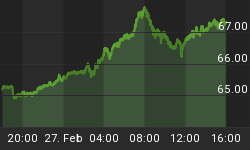The mad rally in crypto markets has spurred another huge hype train--Initial Coin Offerings, or ICOs, which allow startups to design tokens for use as a unit of exchange in their respective technology ecosystems.
This crowdfunded model of raising early-stage capital has become so popular that it has overtaken traditional venture capital with billions of dollars being raised each quarter.
The exponential growth in public interest coupled with esoteric terminology and a lax regulatory framework has unfortunately made ICOs a fertile hunting ground for scammers out to prey on unwitting investors' looking for a quick profit.
In fact, Bitcoin.com says that over $9 million is lost to various cryptocurrency scams EVERY DAY, including phishing, fraud, theft and hacking. And it thinks it’s being conservative.
Here's a rundown of 5 of the worst ICO scams in 2017 (and 2018 isn’t looking any better):

(Click to enlarge)
#1 OneCoin—A $350-million scam
OneCoin ranks as the mother of all crypto frauds due to the sheer magnitude of the heist--$350 million spirited away by Bulgarian magnate Ruja Ignatova in a matter of months.
OneCoin was a textbook Ponzi scheme through and through, and raised many red flags that investors inexplicably missed: no evidence of any token created, no working prototype, team members that were previously linked to other scams, and acceptance of funding in fiat currency instead of cryptos. Related: Gold Markets Enter Uncharted Territory
Other red flags were subtler, including a shoddy website riddled with spelling mistakes and technical glitches, as well as registration in Belize where financial regulation is lax at best.
OneCoin's entire set-up was bizarre: Members had to purchase educational packages that ranged between €100 and €118,000. The packages contained tokens that could be used to mine OneCoins. The whole operation was driven by an army of recruiters located in multiple countries.
#2 PlexCoin—A $15-million scam
One of the largest ICO scams to date, PlexCoin was fortunately halted by the SEC in December 2017 for advertising absurd investor returns of more than 1,300% in just a month.
The founder, Dominic Lacroix, was indicted for past financial crimes and also for pushing fake experts in a bid to bring legitimacy to his new project.
Although the SEC froze the $15 million that PlexCoin had managed to raise, there's no telling whether aggrieved parties will be able to get any of their money back when the crypto dust settles.
#3 Veritaseum—A $5.4-million scam
Veritaseum falls in the gray area between a hack and an outright scam. Veritaseum was an ethereum-based ICO that got hacked under dubious circumstances.
The company claimed to offer peer-to-peer personal banking services before hackers jacked $5.4 million in VERI tokens through what the company claimed to be social engineering.
The company itself raised several red flags, though--long before the alleged hack, including a website that offered little vital information about how the technology worked.
Some investors have gone on to accuse the owners of stealing the tokens and blaming it on hackers, but nothing’s been proven.
#4 Benebit—A $4-million scam
You cannot always tell a potential ICO scam by just looking at a website. Benebit, a blockchain token system that aimed to unify customer loyalty programs, actually looked like a legit ICO, including a healthy $500,000 marketing budget and a well-moderated Telegram channel with 9,000 members.
Further investigations, however, revealed that the founders had provided fake identities.
Needless to say, the company folded soon after somebody blew its cover, but not before pocketing more than $4 million in investors' cash.
#5 Opair/Ebitz—A $2.9-$4.5-million double scam
A mysterious developer known only as “Wasserman” created a pair of ICO scams, Opair and Ebitz, in the summer of 2016.
Opair billed itself as a clone of the popular Zcash coin and pushed a decentralized debit card system through its XPO token. The owners described themselves unflatteringly as a “group of ethical hackers”.
Related: What Sent Bitcoin Below $10k?
BitcoinTalk managed to call the bluff two days after the launch of the ICO after noticing the connection between the two websites. The two were subsequently taken down--but not before the team made away with 388 BTC, worth more than $4.5 million at current bitcoin (BTC) prices.
While some ICOs are blatant scams, others fail--despite their founders’ best intentions--due to poor execution.
And we’re just getting started here: There’s another $4.5-million scam just unfolding. In mid-February, LoopX pulled an exit scam, reportedly walking away with $4.5 million in investor cryptocurrency.
LoopX lured investors in with promises of lucrative returns on a proprietary trading algorithm. After collecting millions in crypto from investors, the website went dark—and the money disappeared in the ether.
By Jan Bauer for Safehaven.com
More Top Reads From Safehaven.com:
















